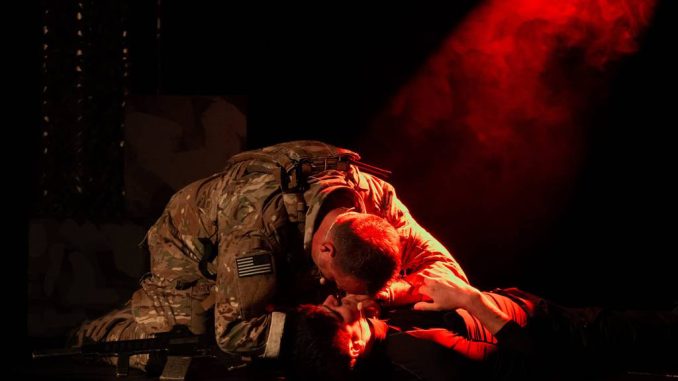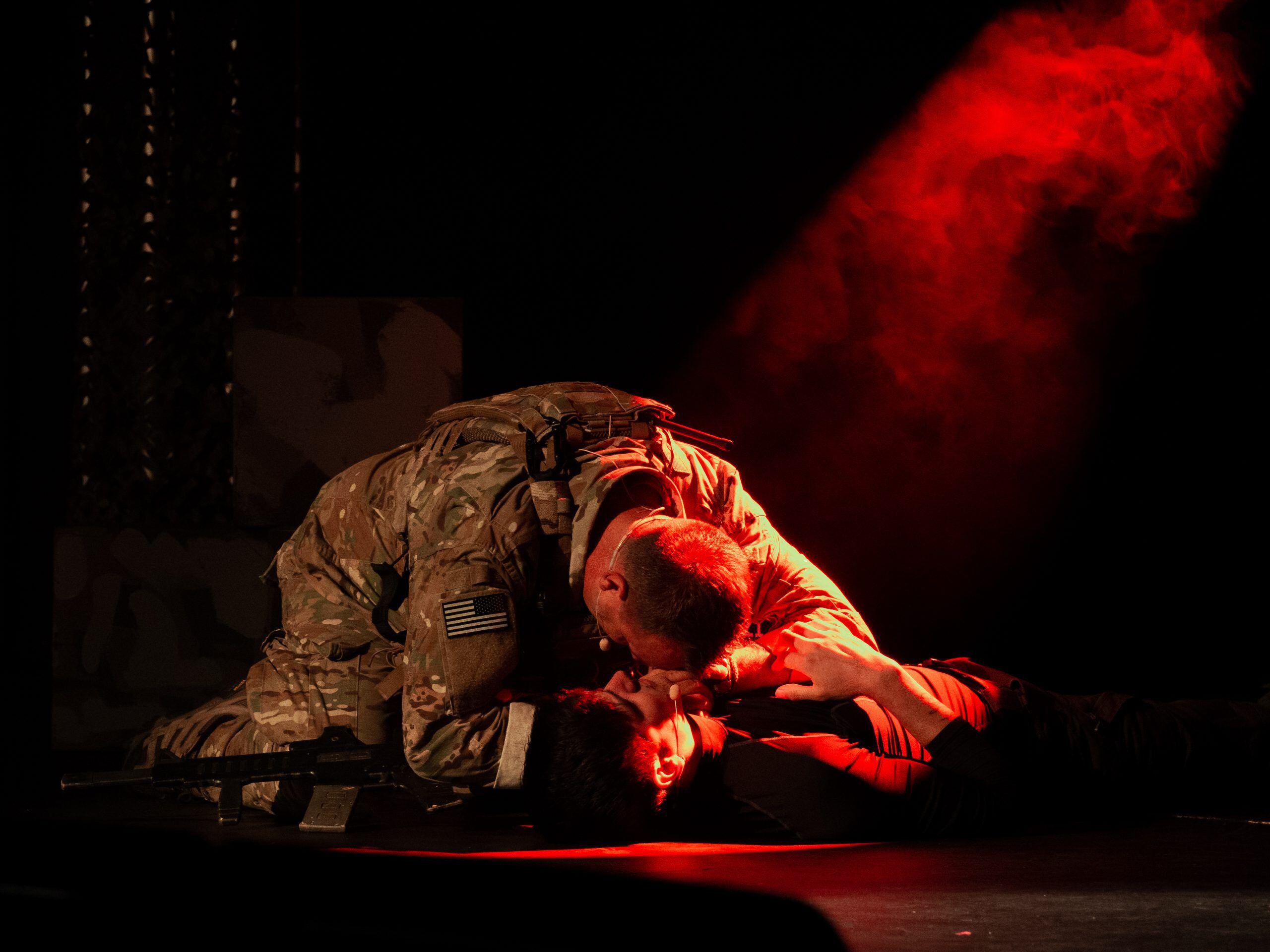

It’s time to heal, said former Green Beret turned playwright Scott Mann. He hopes the release of the film “Last Out: Elegy of a Green Beret” will help with that. After all, writing it helped him heal his own wounds of war.
“Last Out” follows the story of Danny Patton, his wife Lynn, and his comrades. It is based on true stories, a quilt with pieces from the many men and women Lt. Col. Scott Mann served with — and yes — the family he left behind while he served the country.
Mann spent almost 23 years in the Army, 18 of them in special forces. He deployed to Central and South America, Iraq, and Afghanistan. When Mann’s time in the service ended, he said struggled to process the survivor’s guilt and post-traumatic stress disorder from his time in service. Mann talks about the pinnacle of overflowing emotions in a TED Talk in 2019, describing the time he almost took his own life.
With help, Mann overcame that struggle using storytelling. What started as a five-minute play evolved into “Last Out,” a story about the cost of war that Mann said is told the way it was lived, and in a voice that has never been heard.
Mann and the “Last Out” crew traveled America with a U-Haul, performing in many cities in 2019. Cast members would have talkbacks with the audience after the show, hearing from veterans and their families, Gold Star families, and civilians. That was all put on hold when the pandemic started. Mann saw an opportunity to reach new audiences online, and began working on plans to record “Last Out” for release on a major streaming platform. Proceeds would benefit his organization The Heroes Journey, teaching veterans to find their voice and tell their own transition stories.
When American troops began to withdraw from Afghanistan over the summer, veterans were watching closely as the Taliban marched in. Veterans were scrambling to help those they worked with in Afghanistan find a way out of the country. Mann, who helped create the Task Force Pineapple rescue effort, said the Afghan collapse inspired a shift in priorities, deciding to make it available for free. Now, donations to the film will go to Task Force Pineapple, where the funds will help veterans overcome trauma from the collapse, as well as help America’s Afghan partners.
The movie is not just for veterans, Mann said.
“If you are a civilian watching this, I hope you will have a deeper emotional connection to the service of our veterans and their families beyond ‘thank you for your service,’” Mann said.
“For veterans, I hope they will see that what they did mattered, and they can let go of the pain. There is no requirement anywhere that to serve your country, you have to suffer afterward.”
Mann also described “Last Out” as a love letter to military and Gold Star families, calling them the glue of our nation. He said he hopes the film provides validation for their story and sacrifice.
It already has, according to those who shared their stories in a documentary about the making of the film.
Mann hopes at least 100,000 people watch “Last Out” over the Veterans Day weekend, and that each viewer shares it with others.
“We need to tell the story of the sacrifice of our veterans,” Mann said in a recent promotional video, “and we also need to tell the story of the relationships and love that our veterans have with the Afghan people, particularly as they come here to become our newest citizens.”
“Last Out” begins streaming on Veterans Day.


Be the first to comment